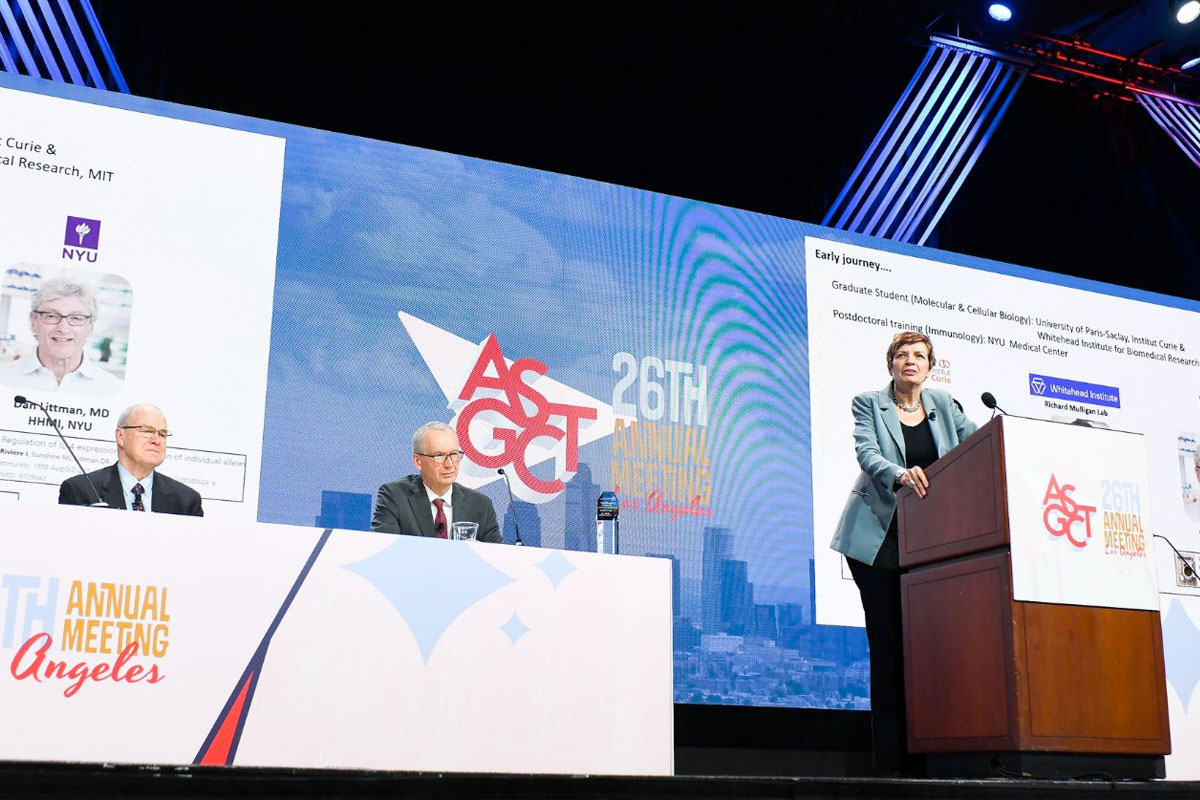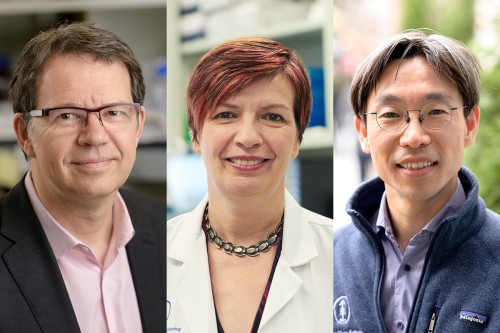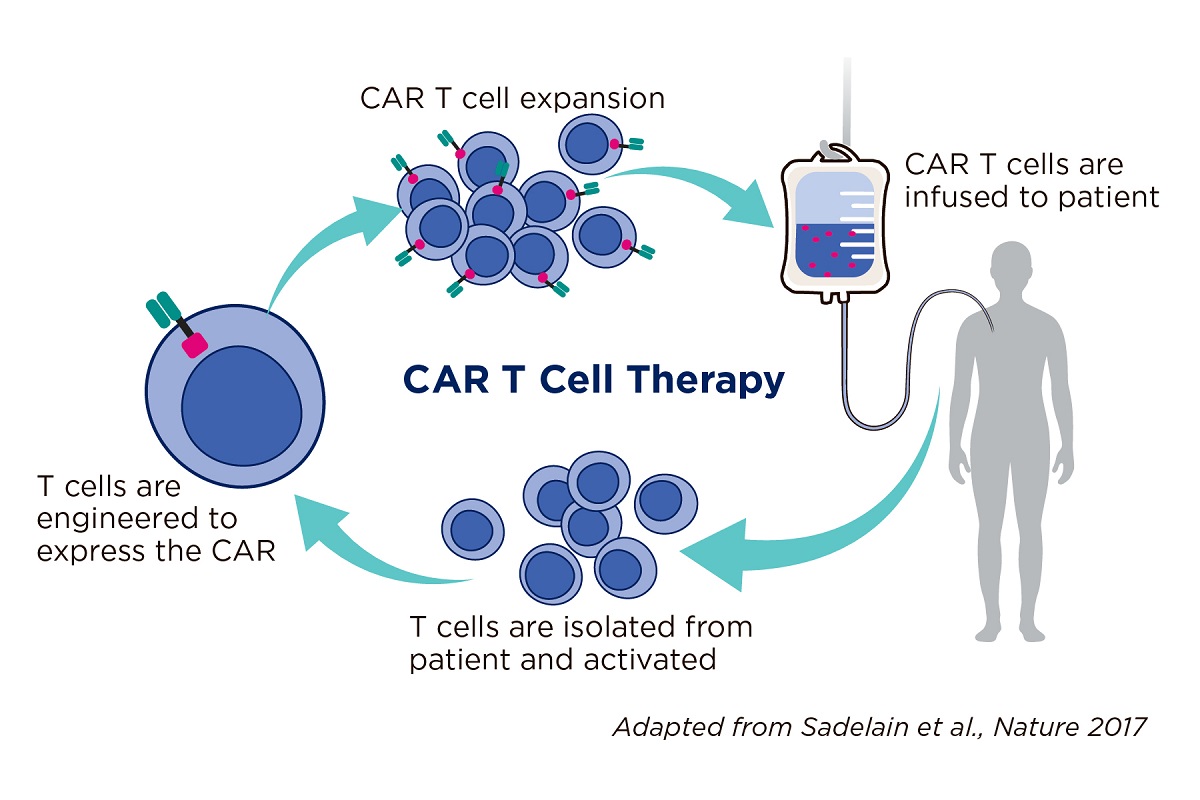
Dr. Isabelle Rivière received the prestigious Jerry Mendell Award for Translational Science at the at the XXVIth Annual American Society of Gene & Cell Therapy (ASGCT) Meeting (Los Angeles, May 2023)
Cells are powerful therapeutic agents. Whether they are engineered or in their natural state, cells are increasingly utilized across a range of pathologies. With an expanding array of cell types now under investigation for the treatment of cancer, genetic disorders, infectious diseases, and degenerative disorders, the Center for Cell Engineering (CCE) at Memorial Sloan Kettering Cancer Center is fostering cutting-edge research on emerging cellular therapies.
The CCE brings together researchers who investigate immune cell therapies, bone marrow and cord blood transplantation, and stem cell-based therapies, with a focus on the transfer, regulation, and repair of genes in human cells. This unique physician-scientist partnership comprises researchers from both Memorial Hospital and the Sloan Kettering Institute who strive to devise and implement breakthrough therapies for cancer and allied diseases.

Our mission is to:
- Investigate the therapeutic potential of human cell engineering, including the induction, isolation, expansion, differentiation, genetic modification, transplantation, and functional monitoring of therapeutic cells
- Strengthen the continuum between the biological, translational, manufacturing, and clinical dimensions of cell engineering and cell therapy
- Implement safe and potent immunotherapies and stem cell therapies for an array of hematological malignancies, solid tumors, and nonmalignant disorders

























